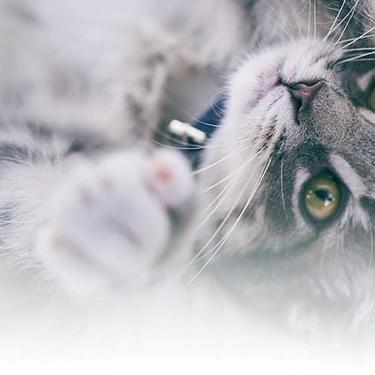
-
Find the right food for your petTake this quiz to see which food may be the best for your furry friend.Find the right food for your petTake this quiz to see which food may be the best for your furry friend.Health CategoryFeatured products
 Hill's Science Diet Adult Healthy Mobility Large Breed Chicken Meal, Barley & Brown Rice Recipe Dog Food
Hill's Science Diet Adult Healthy Mobility Large Breed Chicken Meal, Barley & Brown Rice Recipe Dog FoodAdvanced nutrition shown to support joint health and improve mobility
Shop Now Adult Large Breed Chicken & Barley Recipe Dog Food
Adult Large Breed Chicken & Barley Recipe Dog FoodSupports healthy joints, lean muscle, and beautiful coat for large breed dogs
Shop Now Adult Light Large Breed Chicken Meal & Barley Recipe Dog Food
Adult Light Large Breed Chicken Meal & Barley Recipe Dog FoodFewer calories for less active large breed dogs
Shop NowFeatured products Adult Perfect Digestion Chicken, Barley & Whole Oats Recipe Cat Food
Adult Perfect Digestion Chicken, Barley & Whole Oats Recipe Cat FoodHill's Science Diet's breakthrough nutrition supports ultimate digestive well-being & healthy microbiome
Shop Now Adult Oral Care Chicken & Brown Rice Recipe Cat Food
Adult Oral Care Chicken & Brown Rice Recipe Cat FoodClinically proven kibble technology to reduce plaque & tartar build-up
Shop Now Adult Sensitive Stomach & Skin Pouch Variety 12 Pack Cat Food, Chicken & Beef, Salmon & Tuna
Adult Sensitive Stomach & Skin Pouch Variety 12 Pack Cat Food, Chicken & Beef, Salmon & TunaCarefully made, gourmet daily nutrition. Tasty chunks with Salmon & Tuna in a decadent gravy. Supports digestive health, nourishes skin and promotes a lustrous fur.
Shop Now -
DogCat
- Cat Tips & Articles
-
Health Category
- Weight
- Skin & Food Sensitivities
- Urinary
- Digestive
- Kidney
- Dental
- Serious Illness
-
Life Stage
- Kitten Nutrition
- Adult Nutrition
Featured articles Cat vs. Dog: Which Is the Best Pet for Me?
Cat vs. Dog: Which Is the Best Pet for Me?Learn about important differences between dogs and cats, such as cost & space considerations. These factors can help you decide which pet is best for you.
Read More Fun Ideas for Kids and Pets This Summer
Fun Ideas for Kids and Pets This SummerOutdoor summer activities with your dog or cat can be fun for kids, too. Learn how they also teach kids responsibility & creates a bond with their pet.
Read More Adopting a Pet: What You Need to Know
Adopting a Pet: What You Need to KnowLearn the basics of adopting a pet, including where to begin and common questions you should ask yourself when deciding which kind of pet is best for you.
Read More -


If you have a cat, you've seen the effort she takes to keep her fur clean. Because of this well-groomed exterior, however, it may take some time before you identify skin conditions that can be bothering her. In fact, you may not even notice any sort of irritation until you see an increase in itching, loss of hair, or visible sores as a result.
How to Identify a Problem Right Away
Wondering if your cat has a skin problem? Ideally, your cat's fur is clean and fluffy. Her skin should also feel smooth when you pet her. No redness, lumps, flaking, or any other signs of irritation. So if you discover red patches, pimples, scabs, open sores, scaly patches, or hair loss, she may have a skin condition that needs treatment. Look out for a change in skin odor as well, and any increases in scratching, licking, or itching in places she's favoring more often.
Does your cat have an itch? These cat skin conditions may be irritating your favorite feline:


Tasty Tips
Common Infections
Fungal infections are some of the most typical. Ringworm and yeast infections are two possible reasons why your cat may be experiencing skin problems. Keep in mind they can transfer to other family members quite easily, so early identification is key.
Of course cats are also prone to parasites and viruses, just as you are. Fleas and mites not only make your cat itch, but both can prove to be a starting point for major skin issues. Even if your cat is not an outdoor cat it is wise to consider flea and tick medicine to help prevent these pests from biting her. Ask your veterinarian for recommendations. Certain infections often have side effects of skin irritations. One of those is feline cowpox virus, which the Journal of Feline Medicine and Surgery says cats can get if they've been exposed to rodents that carry the illness. This virus, while not very common in the United States, has seen more cases throughout Europe.
Environmental Influence
When it comes to her skin, the environment can have a three-pronged effect on your cat:
- Environmental allergies: pollen, dust and mold are three common allergens that can lead to cat skin problems. Your veterinarian will be able to help you determine if this is the issue. It's best to keep your cat away from areas that are laden with pollen, dust and mold. Before allowing her back into such areas, take all the necessary steps to clean them thoroughly.
- Food allergies: Skin issues are one symptom of a food allergy. Cats who also experience problems with digestion, such as vomiting or diarrhea, may also show skin problems as another warning sign.
- Medicine: If she's taking a medication, it may have an adverse effect, and you may notice skin problems occurring. Contact your vet before discontinuing use or changing medicine.
What You Can Do
You may still be unsure why your cat can't stop licking and itching, and that's fine. Make an appointment with her vet so she can get the relief she needs. Your cat may need to be treated with medicine for one of these conditions. It is always important to keep an eye on your cat after giving her medicine to ensure that the issue is improving and not worsening. If the issue doesn't slowly start to clear up then there might be other cat skin conditions at play. A vet check-up will help ensure she gets the care she needs. Make sure to have a list of all of the symptoms you have noticed in your cat to help her veterinarian diagnosis the skin irritant.
You love your cat and hate to see her uncomfortable. Even though she is a great self-groomer, check her fur and skin regularly for any possible issues, and keep an eye out for changes in smell, itching, and cleaning routine. The sooner these issues are addressed, the better your cat will feel.


Erin Ollila believes in the power of words and how a message can inform—and even transform—its intended audience. Her writing can be found all over the internet and in print, and includes interviews, ghostwriting, blog posts, and creative nonfiction. Erin is a geek for SEO and all things social media. She graduated from Fairfield University with an M.F.A. in Creative Writing. Reach out to her on Twitter @ReinventingErin or learn more about her at http://erinollila.com.
Related products

Clinically proven kibble technology to reduce plaque & tartar build-up

Delicious tender chicken and rice in a mouthwatering sauce with precisely balanced nutrition to support 5 essential building blocks for lifelong health

Hill's Science Diet's breakthrough nutrition supports ultimate digestive well-being & healthy microbiome

Carefully made, gourmet daily nutrition. Tasty chunks with Salmon & Tuna in a decadent gravy. Supports digestive health, nourishes skin and promotes a lustrous fur.
Related articles

Get helpful information on proper feline oral healthcare and why it's so vital to take care of your cat's teeth.

Obesity affects more than 30 percent of cats in America. Learn how you can properly feed and exercise your cat to improve its weight management.

Understand the symptoms of a chronic upset stomach in your cat, and learn how to help sooth their discomfort.

Provide the best possible treatment for cats with sensitive skin by spotting the signs, knowing the causes, and understanding the remedies. Learn more now.

Put your cat on a diet without them knowing
Our low calorie formula helps you control your cat's weight. It's packed with high-quality protein for building lean muscles, and made with purposeful ingredients for a flavorful, nutritious meal. Clinically proven antioxidants, Vitamin C+E, help promote a healthy immune system.
Put your cat on a diet without them knowing
Our low calorie formula helps you control your cat's weight. It's packed with high-quality protein for building lean muscles, and made with purposeful ingredients for a flavorful, nutritious meal. Clinically proven antioxidants, Vitamin C+E, help promote a healthy immune system.

